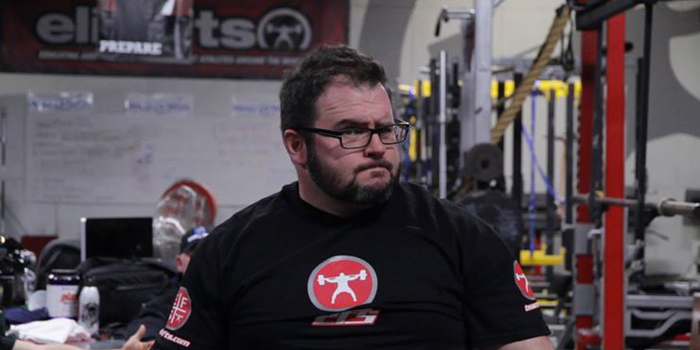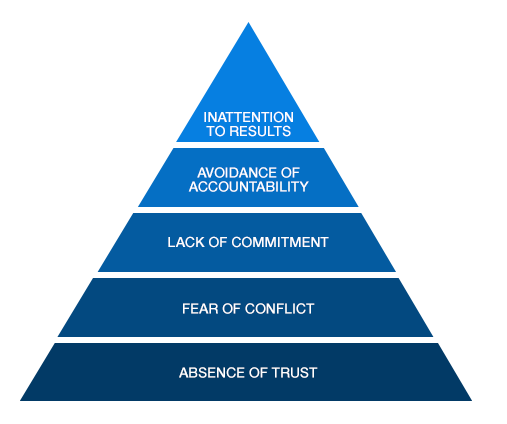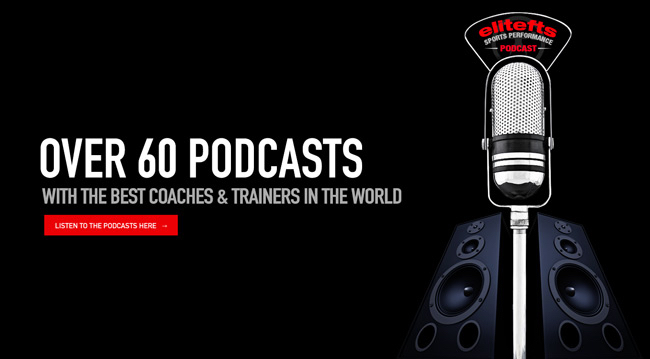
One of the biggest differences I have noticed when comparing and contrasting the strength and conditioning profession and K12 Education is the questions these professionals ask of themselves. Strength & Conditioning coaches are taught to always ask, "Why?" Coaches need to question everything, including their own methodologies. More important than having the right answer, is having an answer to the question, "Why?" Even if that answer is not final, researched, or the same as others in that same position, articulating concrete reasoning is a must. Even the most experienced coaches don't know all the right answers. The differences is, they know the right questions.
What I have found, and been humbled by, in education is not answering the question, "Why?" Everyone knows the reasons why it is important to do the things we do (without going into detail). What is more important in teaching is to ask, "How?" Teachers are often challenged with understanding how to adapt the best practices to their particular situations.
Regardless of whether the follow up questions are why or how, avoiding either is not only naive, but condescending to almost everyone hearing your advice. The problem I have found with these four pieces of advice is this: They are not only the most awful to give, they are also to most common I hear.
1. Just Get Strong
I love this. I guess it's really that simple. Just get stronger and you will lift more weight at your next meet. Just get stronger and you will have more success on the field. And the list goes on. This phrase, along with, "strength training is just not that complicated," forced me to really think about the types of coaches and trainers are in our field. I narrowed it down to four types of coaches. For a detailed look at each, check out the article here.
Look, I get it. There are some sport coaches, administrators, and parents who feel that strength is not that important for athletic performance. But sometimes, it feels most of the dialogue from anyone with a platform is directed at these dinosaurs who will never change their views anyway.
My point is, don't give condescending advice to the majority of coaches and athletes that agree with you but, are counting on you to help them. Isn't that why you got into coaching and/ or have a social media presence in the first place? To help people?
Here is a quick series of questions.
- Do they know they need to get stronger?
- Yes? Teach them how.
- No? Teach them why they should and then how.
The gap between athletes achieving their strength goals and not is rarely a question of "why" in this day and age of information overload. It's the coach's job is to know the why. The gap is often widened when athletes don't understand "the how". And, because there is never one absolute correct answer for "how", athletes often drown in a sea of information. Just in case there are athletes, sport coaches, parents or administrators that don;t understand why strength is important; here are some basic categories of reasoning.
The Three Best Arguments for Getting Athletes Stronger
Strength is the glass ceiling. All other fitness qualities can be limited or have the potential to be raised when strength is increased. The same can be said about aerobic capacity in terms of the ability to recover. Specifically, and increase in maximal strength can allow an increase in explosive strength, strength endurance, and all other sub-categories. Strength being the size of the engine (and quality of breaks, suspension, etc.) while aerobic capacity being a larger gas tank. Or, something like that.
Strength reduces injuries. Almost all lower-body, non-contact, soft-tissue injuries happen during the deceleration or landing phase (eccentric portion) of movement. The ability to reduce (and produce) force is directly related to strength.
Strength = Speed. Whether you want to preach force production into the ground or the role of the posterior chain, hammer this home. Athletes relate to what will be able to do on the field or court. Directly relating performance to strength gains will help bolster your philosophy and addressees the biggest factor you control in training.
2. Hire the Right People
I have always debated between hiring the right people or hiring the wrong people. I'm glad the experts cleared that one up for me. Now, I will just hire the "right" people and my organization will be better. Trouble is, not many "experts" can tell you who those "right" people are or how to find them. In addition, I don't think there is anyone who can tell me who is exactly right for me.
This is the problem with most industries. Managers have to figure out who is going to be part of their team and who they need to invest the time and resources into based on a few-hour interview. The young people that management is banking on to have a positive impact on the company are needed to expose that potential impact with a few standardized questions and small talk. There are companies that had to get very good at interviewing out of necessity. There is an art to asking more thought-provoking questions that provide a glimpse into how the candidate could react or perform in theoretical situations.
But, even the best questions have obvious flaws in their structure. The alternative is to ask the candidate to replace those theoretical "if I was ever in that situation" scenarios with questions based on actual experience. Asking a candidate if they ever had a situation where "something like this" happened and how they handled it is highly dependent on the candidate working in the field long enough to have enough similar experiences to have handled.
A commonly used cliche' in coaching often includes a derivative of the phrase, "get the right people on the bus." To me, this is a cop-out and a crap-shoot at the same time. We as coaches need to be able to identify the right fit, but that comes with experiences. Developing the people around you to become better is a skill that takes more than experience. We as mentors should be developing coaches better than ourselves because they should have all of our experiences and mistakes along with all of their experiences and mistakes to learn from. If you have someone loyally working for you, give them everything you have in your brain-housing group.
3. Be Trustworthy
Again, I don't think there has been a day that goes by where a boss doesn't value trust in his or her employees. Trust is the foundation of any relationship. Looking at Patrick Lencioni's Five Dysfunctions of a Team, the first dysfunction is Absence of Trust. This is the bottom of the pyramid and without it, an organization is stuck at the base level.
Being a trustworthy individual is one of the most basic, core qualities anyone can have. My argument against looking specifically for this attribute in a potential employee or team member is two-fold.
- Without it, there is no relationship to build-on or to improve upon. The people you hire will have positive qualities and areas they need to work on. There should never be a conversation about a staff member that sounds something like, "That Jones guy in accounting is a hard worker and is good at his job... I just don't trust him." The foundation of the relationship and the core of their character is dismantled without trust.
- Trust is not an attribute or a character trait. Trust is given. Even the notion of "being trustworthy" is uniquely dependent upon the individual giving that trust. An individual's actions and behaviors may influence other's perception of them, but the perception still belongs to them. Telling someone that need to be trustworthy is like telling them to be smart, or make sure everyone likes them, or "don't be a turd."
When I was the Director of Strength & Conditioning at Denison University, we had an extensive internship program which we were fortunate to have aspiring strength coaches from 12 different institutions from one time to another. We developed our K.I.C. Evaluations for our internal and external interns. These evaluations had three categories with four different levels (0-3). The categories were:
- Knowledge
- Initiative
- Communication
Coaches and interns would often ask why I did not include other parameters to intern evaluation such as being trustworthy, being responsible, and being dependable. The simple answer has always been: If the intern is not trustworthy, responsible, or dependable, they will no longer be an intern.
For a much more detailed look at the K.I.C. Evaluations and the Level System of Evaluating Interns, check out Part III of The Strength & Conditioning Internship. A Simple Guide for Coaches.
4. Build Relationships
Finally, thank you. I was prepared to go through my entire career without getting to know any of my colleagues or athletes. Now, I realize there are young coaches who feel their extensive theoretical knowledge and the fact they have regurgitated everything they heard from others are a passport to the land of the self-declared experts. I honestly think it takes young coaches quite a while to realize that sets and reps or whatever new, sexy drill is on social media is the ticket to reaching their coaching potential. They all realize at some point that everything about their job and their entire career is based on relationships. The ones that don't realize this aren't coaches anymore.
Telling a young coach they need to build a rapport with athletes is literally destroying your rapport with those young coaches. People have figured out that athletes will gain respect for a coach if they truly start to know who that coach is as a person. Building a rapport is the foundation of coaching and teaching. If not, then it is just a one-direction passing of information. The information that is rarely given to those young coaches who genuinely want to improve is "how" to build that rapport. To further complicate this lack of guidance is that there is no true answer that is not overly-superficial.
All relationships start with trust and we generally gravitate to people with similar interests and points of view. This relationship is often strained when the two parties are not peers. I have been fortunate enough to be around coaches who were honest with me, tough on me, and treated me based on my actions and behaviors and not their own perceptions. That's all we can ask for.
From Networking to Employment: The Top 10 Relationship Building Behaviors
- Introduce yourself with prior knowledge of that person if possible - have a conversation starter.
- Eye Contact and Firm Handshake - no dead fish and don't "big time" to look around for other coaches
- Remember Names - repeat at the beginning and end of the conversation
- Listen - Don't just wait for your turn to talk
- Ask questions about that person - other than ones you could have googled.
- Don't sell yourself, be yourself. Unless you are a negative person, then be someone else
- Ask yourself, "How am I treating this person, even if I have nothing to gain from them?"
- Ask yourself, "Is this person better off for knowing me?"
- Exit the conversation professionally if talking with a larger group.
- Follow up with an email or hand-written note.
Hopefully, this gives some insight on what advice you should (or shouldn't) give other coaches. Disagree with any? I would love to hear your opinions in the comments.
Articles by Mark Watts
Olympic Lifting for Athletes: Using Static Holds to Improve Technique
Head Games: Training the Neck to Reduce Concussions
The Fastest Sport on Ice: Things You Don't Know About Bobsled
Tips to Crush the Combine Tests
An In-Season Training Guide for Baseball Pitchers
Individual Training in a Team Setting
Off-Season Training for Football (with 8-Week Program)
What is Really Wrong with Strength and Conditioning
The Last Sports Performance Podcast
Olympic Lifting for Athletic Performance
Sports Performance Coach Education Series
WATCH: How to Find a Strength and Conditioning Job
WATCH: Becoming a Mentor to Young Coaches
WATCH: The Four-Step Coaching Process
WATCH: 5 Strategies to Perform More Work in Less Time
WATCH: Why Communication is Key to a Better Coaching Career
WATCH: A Better Way to Train High School Athletes
WATCH: How to Implement Auto-Regulatory Training in a Team Setting
WATCH: Pre-Workout Circuits to Optimize Training Time and Maximize Performance
WATCH: Hypertrophy Circuits for Athletes in a Team Setting
Coaches Clinics
WATCH: Two Bench Press Mechanical Drop-Sets for Hypertrophy
WATCH: Two Lateral Speed Drills with Bands to Improve Change of Direction
WATCH: Adjusting the Glute-Ham Raise to Optimize Your Training
WATCH: Basic Linear Speed Acceleration Drills in a Team Setting
WATCH: Kettlebell Training for Team Sports
















Thank you for the kind words, my friend. We are all a work in progress and learning and applying is an ever-changing. I appreciate your feedback. It means a lot.